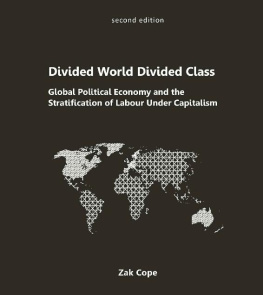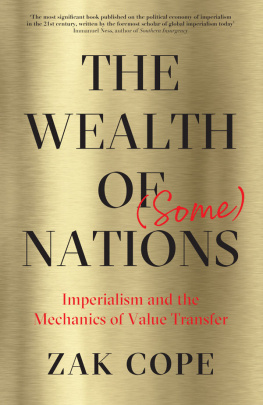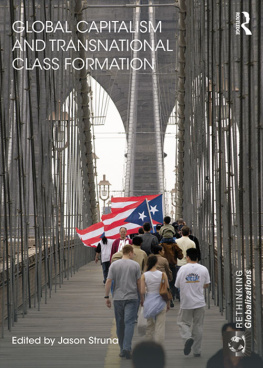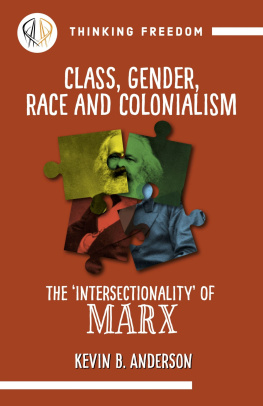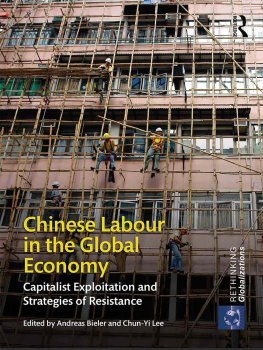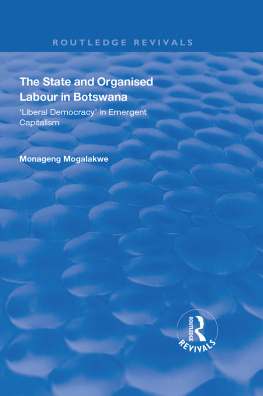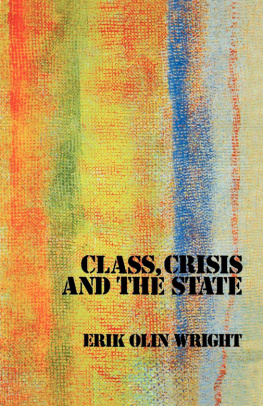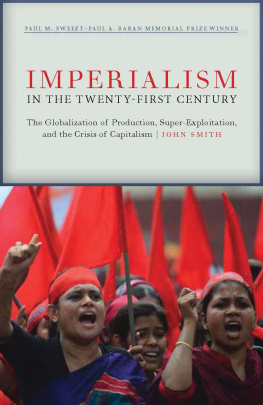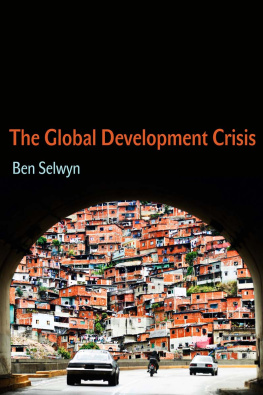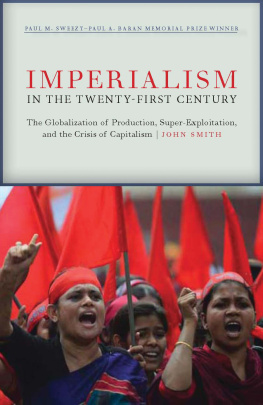Zak Cope - Divided World Divided Class: Global Political Economy and the Stratification of Labour Under Capitalism
Here you can read online Zak Cope - Divided World Divided Class: Global Political Economy and the Stratification of Labour Under Capitalism full text of the book (entire story) in english for free. Download pdf and epub, get meaning, cover and reviews about this ebook. year: 2015, publisher: Kersplebedeb, genre: Politics. Description of the work, (preface) as well as reviews are available. Best literature library LitArk.com created for fans of good reading and offers a wide selection of genres:
Romance novel
Science fiction
Adventure
Detective
Science
History
Home and family
Prose
Art
Politics
Computer
Non-fiction
Religion
Business
Children
Humor
Choose a favorite category and find really read worthwhile books. Enjoy immersion in the world of imagination, feel the emotions of the characters or learn something new for yourself, make an fascinating discovery.
Divided World Divided Class: Global Political Economy and the Stratification of Labour Under Capitalism: summary, description and annotation
We offer to read an annotation, description, summary or preface (depends on what the author of the book "Divided World Divided Class: Global Political Economy and the Stratification of Labour Under Capitalism" wrote himself). If you haven't found the necessary information about the book — write in the comments, we will try to find it.
The book demonstrates not only how redistribution of income derived from super-exploitation has allowed for the amelioration of class conflict in the wealthy capitalist countries, it also shows that the exorbitant super-wage paid to workers there has meant the disappearance of a domestic vehicle for socialism, an exploited working class. Rather, in its place is a deeply conservative metropolitan workforce committed to maintaining, and even extending, its privileged position through imperialism.
The book is intended as a major contribution to debates on the international class structure and socialist strategy for the twenty-first century.
What People Are Saying
Dr. Cope presents a thought provoking study of the political economy of the world system by focusing on the concept of a global labour aristocracy. Within the world system, which has also been described as a global apartheid system by some, enormous differences exist between workers wages and living conditions, depending on where the workers are located. The author details how a global labour aristocracy in core countries benefits at the expense of workers in periphery countries. The mechanisms supporting such a situation are identified as exploitation, imperialism and racism. The book is a valuable contribution to globalization critique.
- Gernot Khler, Professor (retired) of Computer Studies at the Department of Computing and Information Management, Sheridan College, Ontario, Canada and author of The Global Wage System: A Study of International Wage Differences and Global Economics: An Introductory Course
How can we link the division between the poor and the rich people in one and any country and the division between the rich and poor nations together into an analytical framework? The answer lies in the concept of the embourgeoisement of the working people of the rich core countries and the fact that colonialism and national chauvinism have gone hand in hand so as to breed a labour aristocracy. This book is a must-read for anyone who cares about fairness. Zak Cope brings together brilliantly the concepts of nation, race and class analytically under the umbrella of capitalism, by situating racism in the class structure and by locating class in the context of the global economy.
- Mobo Gao, Chair of Chinese Studies and Director of the Confucius Institute at the Centre for Asian Studies, University of Adelaide, and author of The Battle for Chinas Past: Mao and the Cultural Revolution
This is a surprising book. At a time when confusion about Globalization surrounds us, Zak Cope pulls us towards what is fundamental. He outlines the 19th & 20th century recasting of the diverse human world into rigid forms of oppressed colonized societies and oppressor colonizing societies. A world divide still heavily determining our lives. Working rigorously in a marxist-leninist vein, the author focuses on how imperialism led to a giant metropolis where even the main working class itself is heavily socially bribed and loyal to capitalist oppression. Much is laid aside in his analysis, in order to concentrate on only what he considers the most basic structure of all in world capitalist society. This is writing both controversial and foundational at one and the same time.
- J. Sakai, author of Settlers: Mythology of the White Proletariat
Zak Cope: author's other books
Who wrote Divided World Divided Class: Global Political Economy and the Stratification of Labour Under Capitalism? Find out the surname, the name of the author of the book and a list of all author's works by series.

